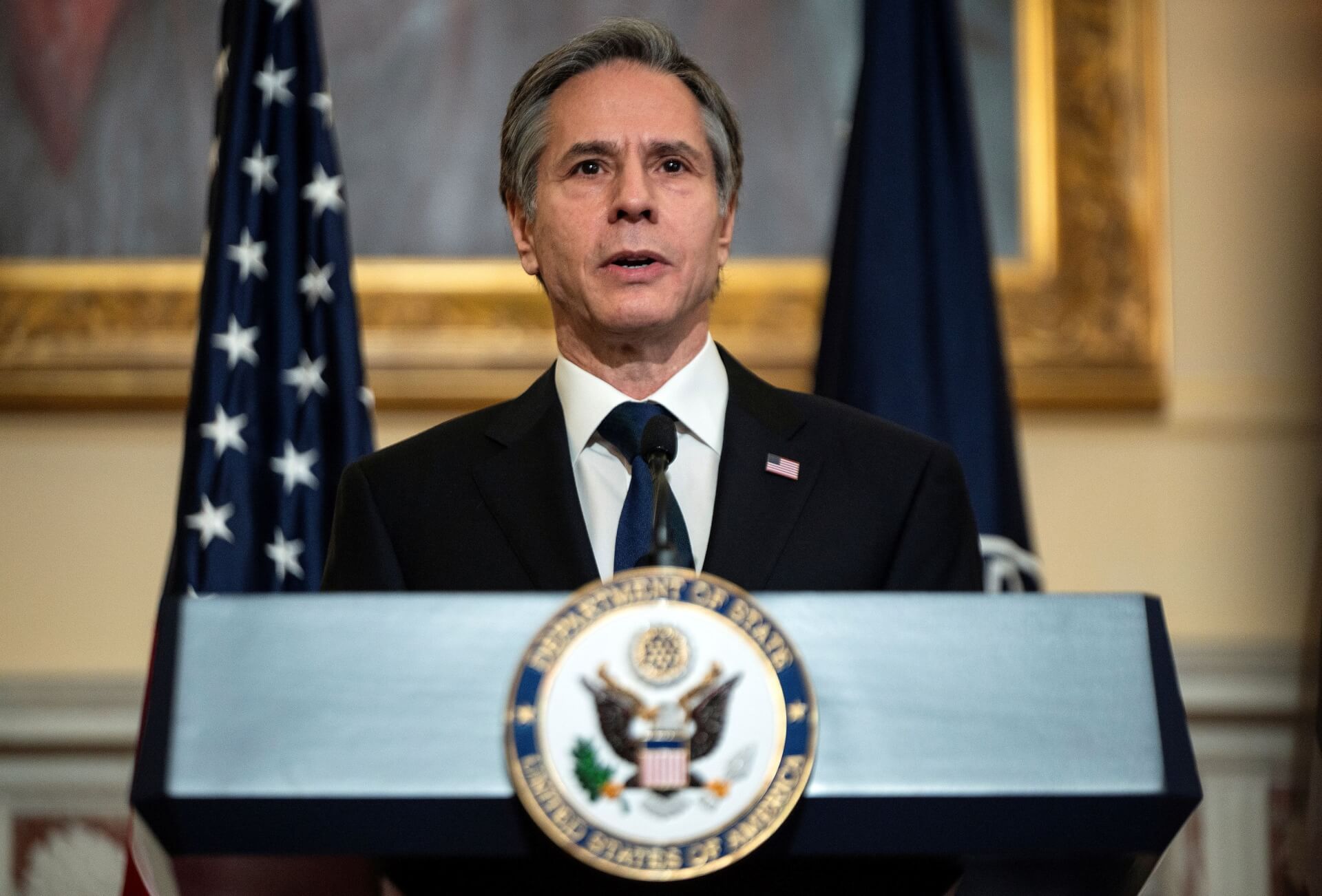In his first major policy address since taking office, United States (US) Secretary of State Antony Blinken on Wednesday laid out President Joe Biden’s national security strategy and emphasised the role of diplomacy in advancing and securing American interests both at home and abroad.
The US’ top diplomat noted the challenges of connecting foreign policy to the needs and aspirations of the American people and said that the new administration had set its goals keeping Americans at the centre of their thinking. Blinken stressed that times were different, and though many in the current government served under President Obama, foreign policy must always “fit the moment,” and this time is no different. “We’re not simply picking up where we left off as if the past four years didn’t happen. We’re looking at the world with fresh eyes,” he added.
Blinken presented the eight top foreign policy priorities of the Biden administration, which include a variety of issues like: tackling COVID-19 and strengthening the global health infrastructure; building a more stable and inclusive global economy; addressing climate change; elevating democracy while maintaining military supremacy; improving the US immigration system; reengaging with allies and international organisations; investing in new technology; and managing great power competition with China.
The secretary noted that while the government was working to swiftly address the short-term impact of all of these challenges, the administration was committed to addressing root-causes of the issues at hand and lay the groundwork for America’s long-term strength. Blinken stressed that the only way to do so and advance American interests was through strengthened democracy, diplomacy, and close cooperation with partners and allies.
“Shoring up our democracy is a foreign policy imperative. Otherwise, we play right into the hands of adversaries and competitors like Russia and China, who seize every opportunity to sow doubts about the strength of our democracy. We shouldn’t be making their jobs easier,” he said. The secretary warned that democracy was fragile and being eroded in the US as well, and with the world watching, it was important that America rose to the challenge. “That will be the foundation for our legitimacy in defending democracy around the world for years to come,” he added.
However, Blinken said that the US would no longer promote democracy through costly military interventions or by attempting to overthrow authoritarian regimes. “We have tried these tactics in the past. However well-intentioned, they haven’t worked.” And so, the secretary said, it was time to do things differently, by leading by the power of example and encouraging others to do the same.
On diplomacy and broader engagement with the world, Blinken argued that it was crucial that America invest in institutions, and keep its seat at the table, especially in the face of its “biggest geopolitical test of the 21st century,” China. “Our relationship with China will be competitive when it should be, collaborative when it can be, and adversarial when it must be,” the secretary said, adding: “The common denominator is the need to engage China from a position of strength.”
Blinken stressed that the challenges outlined by him were simultaneously domestic and foreign issues. “More than any other time in my career – maybe in my lifetime – distinctions between ‘domestic’ and ‘foreign’ policy have simply fallen away,” he said. “Our domestic renewal and our strength in the world are completely entwined. And how we work will reflect that reality.”
You can read the full transcript here.
To read the Biden administration’s recently released Interim National Security Strategic Guidance, click here.

